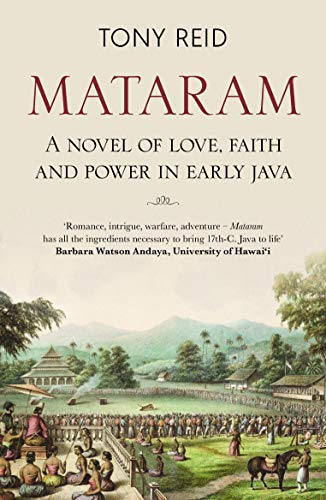Tumbledown tragedies; some
can be prevented
Richter
Scale Day (26 April) honors the 1900 birth of Charles Richter. He’s the American
seismologist who invented the scale which measures earthquakes.
The biggest in Indonesia last year was the magnitude 7.5 Palu quake
and tsunami in Central Sulawesi. Engineers blamed poor construction and houses
built on land prone to soil liquefaction for some of the 4,400 deaths.
It doesn’t always need a
quake to smash and kill. Among the many urgent tasks facing the new national
and provincial governments is to enforce building regulations. Duncan
Graham reports from Cirebon:
-----------------------------------------------------------------------------------------------------------
Monday 16 April last year
dawned like any other in the village
of Gegesik outside the port city of Cirebon, 220 kilometers east of Jakarta.
Samini, 40, had sent her
daughter Tri Hana Sita, 10, off to primary school. Her eldest son Aridh Newton Rachman, 22, was
working far away.
At the rear of the family’s
house was a small studio built of pre-cast concrete blocks and constructed the
year before. Here Samini’s husband
Suherman bin Basan, 48, a dahlang (puppet master) was leading a gamelan
orchestra rehearsal with the couple’s second son, Aziz Isaac Fathur Rachman,
20, and eight local children.
Members of the Hidayat
Jati group were getting ready for shows later in the month.
“It was about 10.30. I just
went out to buy a gas bottle and a few other things,” said Samini. “I wasn’t
more than 100 meters away, but I didn’t hear anything. Then I saw people running to our house.”
An old nine-meter high barn
alongside the studio had collapsed. The
windowless building had small openings to encourage walet (native swifts) to breed.
Their nests are harvested to make Chinese soup.
But the birds had deserted
the empty building before it suddenly tumbled onto the studio. Seven died
instantly, including Suherman and Aziz, their bodies brutally disfigured by the
tumbling bricks. Two girls and a boy were injured but have since recovered.
In the West there’d be a
coronial inquiry and charges laid against the barn owner for failing to keep
the building sound. The local government
would also be held responsible for not ensuring regulations were followed.
The builders of the studio
would also be summonsed. The remaining
walls, only eight centimeters thick, show a jerry-built construction using
low-quality mortar easily crumbled by hand.
There’s no obvious reinforcement and the blocks are not in-line.
“There was no wind, no rain
and no earthquake,” said Samini. “Some
said the foundations had not been properly dug, but the barn had been in place
for more than ten years.”
In villages other
explanations have to be found.
Inevitably they involve the supernatural – and it’s hard to remain
skeptical.
A pink-flowering bush is a
splash of color amid the grey rubble of smashed bricks and shattered asbestos
sheets that was once the music studio.
It’s the only living thing in the debris and Samini says it wasn’t
planted by her or anyone else. It
thrives on the spot where her husband died.
Then there’s the question of
the swifts abandoning their home. Did
they sense earlier movements in the walls and roof?
Suherman and Umer’s lives
were not insured. Nor was the
building. Apart from big companies and
the rich, few buy insurance in Indonesia.
As a dahlang Suherman
was said to be gifted with paranormal powers.
Before his sudden death he told his wife he had a dream of her becoming
wealthy.
Since the accident she’s received compensation from the
government and the barn owner, though doesn’t want the sums published for fear
of arousing envy among neighbors. She’s
also received support from a city almost 8,000 kilometers away.
Cirebon has a longtime link to Wellington, the quake-prone capital of NZ. In
the 1970s the late ethnomusicologist Dr Allan Thomas, who had been studying in Cirebon,
bought a ten-piece gamelan set and 140 wayang kulit shadow puppets that were threatened
by fundamentalists seeking to stamp out local culture.
Some of the instruments were
400 years old and hadn’t been played for half a century. In Wellington
they were restored with the help of the Indonesian Embassy; they were called The
First Smile and used for concerts
Dance teacher and musician Jennifer Shennan said
her late husband often spoke of music going beyond business and politics,
helping people from different cultures get to know and understand each other
better through feeling.
So when
the Kiwis heard of the Gegesik tragedy they held a concert and raised enough
cash to help Samini develop a
business. The money has been used to
build a warung (shop) on the front of her house where she plans to sell
necessities.
She remains doubtful about
the logical explanations for the building’s collapse and keeps asking why it
happened, and why then.
“Some people were jealous of
my husband and his success and for reviving the wayang kulit,” she
said. “Maybe he was cursed by someone
using black magic.”
Or maybe the curse should be put on the builders who cut costs and corners,
and the bureaucrats who failed to police the regulations.
Late last year a
major road in Surabaya
suddenly collapsed. Fortunately no
deaths were reported. Some blamed an
earthquake or sinkhole, but Sutopo Purwo Nugroho of the National Board for
Disaster Management said it was caused by construction errors, again highlighting
the lack of controls in the building business.
##First published in The Jakarta Post 25 April 2019)

